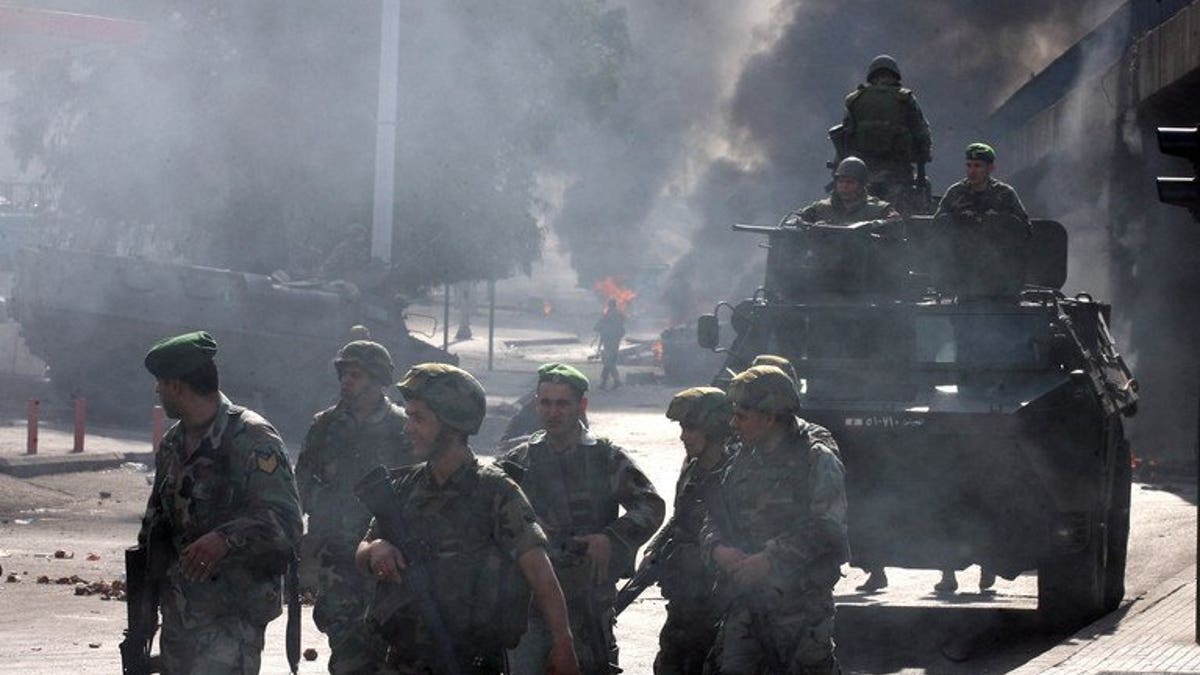
Lebanese soldiers patrol the streets of Beirut, on January 25, 2011. Lebanese troops are to take over security at checkpoints set up by the Hezbollah movement in their southern Beirut stronghold after two bombings, the interior minister has told AFP. (AFP/File)
BEIRUT (AFP) – Lebanese troops are to take over security at checkpoints set up by the Hezbollah movement in their southern Beirut stronghold after two bombings, the interior minister told AFP on Sunday.
"A joint force of 800 men composed of soldiers from the army and security services will begin their deployment on Monday afternoon in the southern suburbs," Marwan Charbel said.
The Shiite militant group Hezbollah is a powerful force in Lebanon, particularly in the southern suburbs of Beirut, where it has been accused of running a "state-within-a-state".
Following two bombings targeting its Beirut bastion, Hezbollah turned the southern suburbs into a fortress with guards in civilian clothes policing the streets, stopping and searching cars and asking motorists for their IDs.
Charbel said the joint force "will have the primary goal of checking suspect vehicles and the identities of suspicious persons."
"No one else will be authorised to be present at the checkpoints," said Charbel.
"The State must extend its control over all of the Lebanese territory," he added.
Hezbollah set up its own security checkpoints in the Beirut's southern suburbs after the bombings which wounded more than 50 people on July 9 and killed 27 on August 15.
Days later an AFP correspondent who toured the area witnessed guards policing the streets, including some in uniform from the Hezbollah-run "Union of Municipalities of the Southern Suburbs."
The Lebanese army is also present in the area and has a barracks in the Bir el-Abed neighbourhood, but after the bombings Hezbollah insisted on deploying its own militants to man checkpoints.
Hezbollah, whose military wing was blacklisted by the European Union in July, did not disarm at the end of the 1975-1990 civil war, arguing that it needed to protect Lebanon against Israeli attacks.
It is backed by Iran and is a staunch supporter of the embattled regime of Syrian President Bashar al-Assad.
Hezbollah has found itself targeted in Lebanon over its involvement in Syria, where it has dispatched fighters to battle alongside Assad's forces against rebels determined to topple him.
This involvement has divided opinion in Lebanon, where many Shiites back the regime and many Sunnis support the Sunni-dominated uprising.
Hezbollah chief Hassan Nasrallah is due to give a speech on Monday night, which will be broadcast by the group's Al-Manar network.
